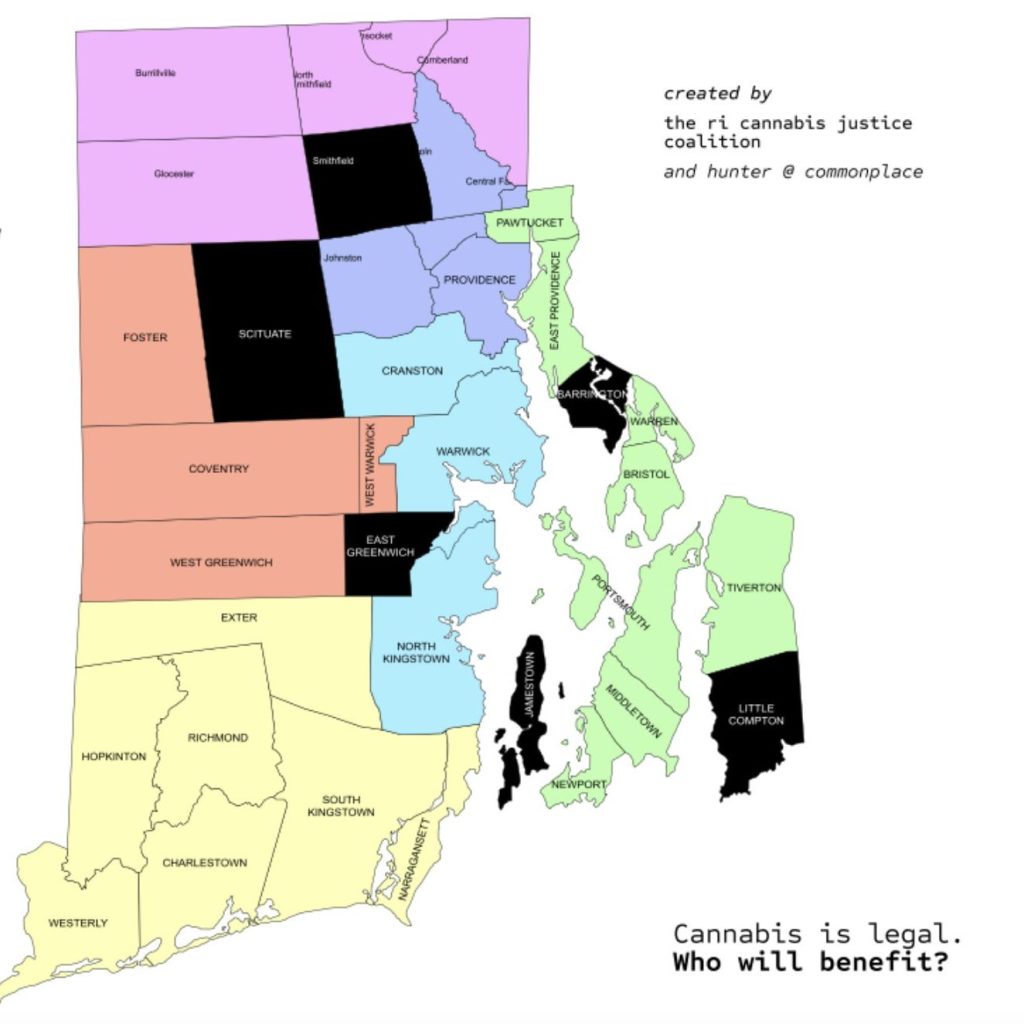The Fight for Cannabis Justice
Co-op Rhody was born out of a multi-year campaign to build a socially equitable and cooperative cannabis industry in Rhode Island. Beginning in 2021, activists from RI-based organizations including ReclaimRI, DARE (Direct Action for Rights and Equality), Break the Cycle Cooperative Hub, and UFCW Local 328 played leading roles in fighting for just and equitable legalization legislation. Many of the activists on the frontlines of this struggle came from disinvested communities, and personally experienced the injustices of racist drug enforcement policies.
The RI Cannabis Act, which passed in May 2022, is one of the most progressive cannabis legalization bills in the country. It requires Labor Peace Agreements for all new cannabis businesses, provides automatic expungements for non-violent cannabis crimes, and reserves six out of 24 new retail licenses for worker-owned co-ops.
Rhode Island’s adult-use cannabis retail market is projected to surpass $131 million in annual sales in 2024. The reservation of retail licenses for worker cooperatives creates an unprecedented opportunity: for a significant portion (6 out of 33 licenses, or about 18%) of a $130+ million industry to be financially-controlled and democratically-governed by historically marginalized workers. This environment creates a reservoir of demand for hands-on support for worker cooperative organizing.
Here in Rhode Island, we have an unprecedented and historic opportunity to create a new business model template within the cannabis industry which doesn’t simply tack “equity” onto its structure as an afterthought, but actually bakes worker empowerment and community wealth-building into the design of the market itself.

Rhode Island’s 2022 Cannabis Act
Thanks to the work of the RI Cannabis Justice Coalition, the Rhode Island’s Cannabis Act is one of the most progressive legalization bills in the country.
Among other things, the bill:
- Creates a Social Equity Fund, which will provide grants and fee waivers to social equity applicants, promote job training and workforce development, and administer programming for restorative justice and other rehabilitative programs
- Creates 24 new retails licenses, of which 6 are reserved for social equity applicants, and another 6 are reserved for worker cooperatives. (These licenses are allocated across the six geographic zones shown below.)
- Requires all newly-licenses cannabis businesses to sign Labor Peace Agreements with a union, meaning that they cannot engage in union-busting activities
- Offers automatic expungements for non-violent cannabis crimes

